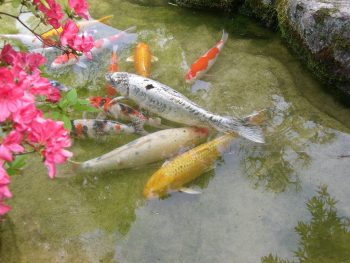Archive by Author
3 Must-Watch Japanese Dramas Posted by ranita on Jan 22, 2017

When learning a new language the biggest challenge one could face is improving their listening skills. Especially when they are not living in that country. I have seen students buy listening practice materials and books for the choukai (聴解) section of the JLPT. There is no doubt that JLPT choukai (聴解) books will familiarise you…
The Four Islands of Japan Posted by ranita on Jan 15, 2017

Japan (日本 Nihon) – land of the rising sun occupies only 377922 km² of land and is surrounded by water. Not connected to any other country by land makes Japan a unique country with respect to culture (文化 Bunka) and tradition (伝統 Dentou). What many of us might not know is that the Japanese archipelago…
4 Tips for Learning Japanese Posted by ranita on Jan 7, 2017

あけましておめでとうございます。Akemashite Omedetou Gozaimasu. Wishing all the readers of our blog a very Happy New Year. Many of us start the New Year with new resolutions. It is a good thing to make resolutions because it makes us stay focused and determined. Learning any foreign language is not an easy task. On this note, I decided…
New Year Celebration at Tōdaiji in Nara Posted by ranita on Dec 30, 2016
New Year (新年 Shinnen) is just around the corner and we are all looking forward to celebrate it in our own way. Last year, I spent the New Year’s Eve (大晦日 Ōmisoka) at Tōdaiji (東大寺) temple in Nara (奈良). In this post I am going to share my experience of New Year (新年 Shinnen) in…
Japanese Words Formed by Antonyms Posted by ranita on Dec 24, 2016

In this lesson I would like to share some interesting Japanese words. Here is a list of 8 Japanese words and phrases that are formed by two antonyms. 表と裏 (おもてとうら omote to ura) two sides of the same coin どんなことにも表と裏があるものですね。Donna koto ni mo omote to ura ga aru mono desu ne. Everything has two sides…
8 Japanese Onomatopoeic Words Posted by ranita on Dec 16, 2016
Onomatopoeia refers to the usage of words that describe sounds associated with an action or a thing. There are mainly three types of onomatopoeic words in Japanese – Giongo 擬音語, Giseigo 擬声語 and Gitaigo 擬態語. Giongo 擬音語 are onomatopoeic words that represent sounds produced by non-living objects. For example, ザーザー zaazaa is the sound of…
The Japanese Zodiac Posted by ranita on Dec 8, 2016
Hi everyone! Today I am going to talk about an interesting topic – the Japanese zodiac. 十二支 Juunishi or the Japanese zodiac signs are identical to the Chinese zodiac signs. It is based on the 12 year cycle, where each year is assigned an animal. However, in the Japanese zodiac system goat is replaced by…


